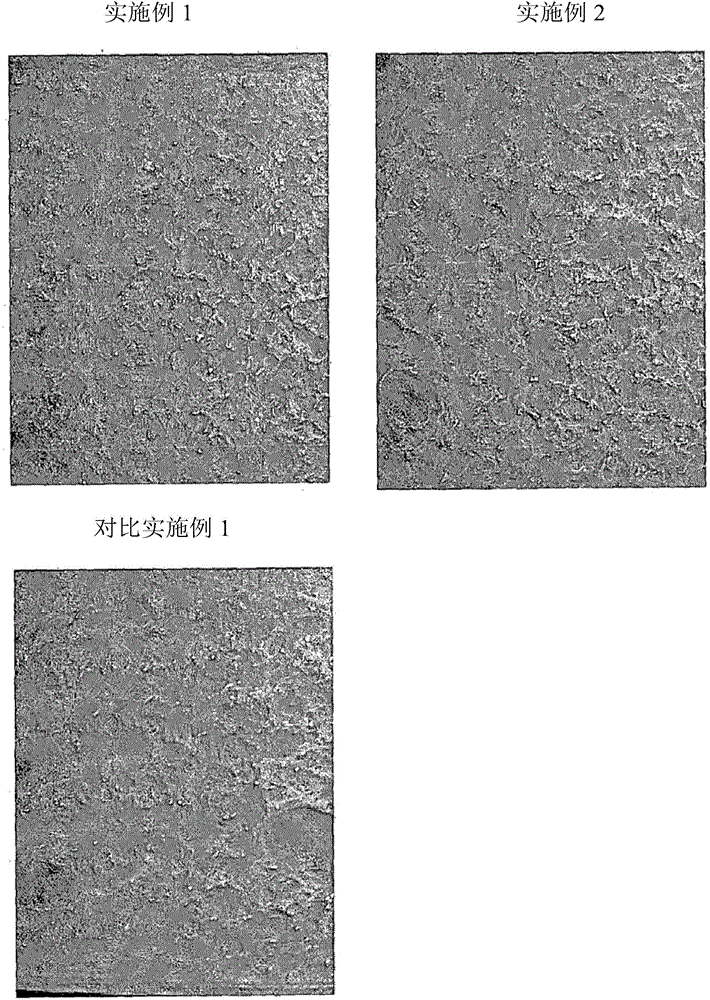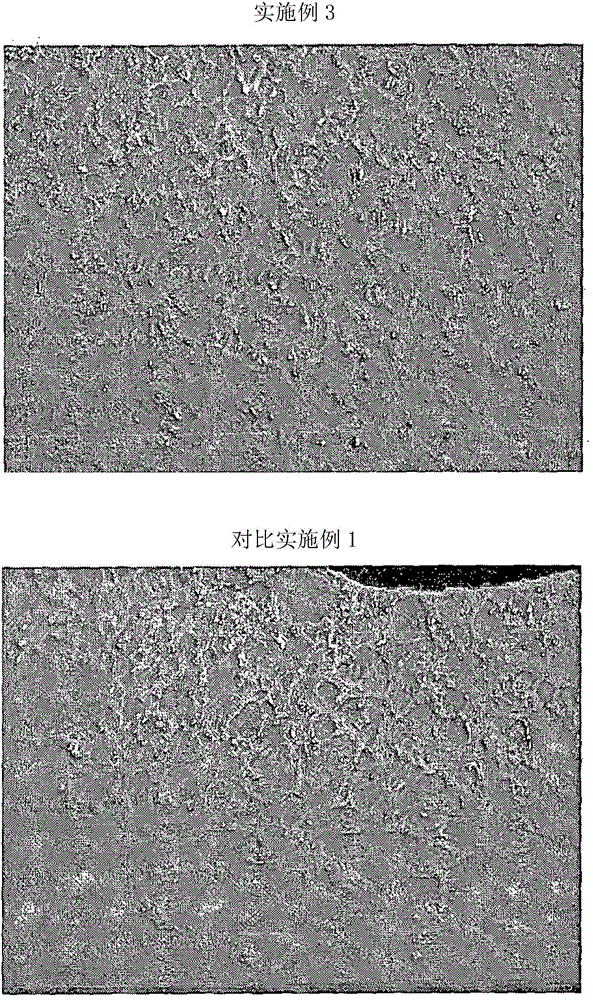Polyvinyl chloride-based paste resin, and preparation method therefor
A polyvinyl chloride paste resin, polyvinyl chloride resin technology, applied in the field of polyvinyl chloride paste resin and its preparation, can solve the problems of limited improvement of foamability, poor compatibility, poor dispersion, etc., to achieve improved Effects of viscosity characteristics, excellent foaming and moisture resistance
- Summary
- Abstract
- Description
- Claims
- Application Information
AI Technical Summary
Problems solved by technology
Method used
Image
Examples
preparation example Construction
[0025] And, the preparation method of the PVC paste resin comprises the steps of: preparing a PVC resin latex comprising a PVC resin; adding a styrene / acrylic resin solution to the PVC resin latex; and drying the styrene / acrylic resin into which the styrene / acrylic PVC resin latex for resin solution.
[0026] In the present invention, the terms 'first', 'second', etc. are used to explain various components, and the terms are used only to distinguish one component from other components.
[0027] Furthermore, the words "on" or "over" as used in the context of forming or building a layer or element means that one layer or element is formed or built directly on another layer or element, or To additionally form or build a layer or element between two layers or on an object or substrate.
preparation Embodiment 1
[0079] Water-soluble styrene / acrylic resins were prepared by performing continuous bulk polymerization of styrene monomers (styrene and α-methylstyrene) and acrylic monomers in the amounts disclosed in Table 1 below in a 1 L SUS reactor. The polymerization initiator used was tert-butyl peroxybenzoate, and the amount used was 0.2 parts by weight based on the total weight of the monomers. And, a mixture of dipropylene glycol methyl ether and water was used as a solvent in an amount of 9.0 parts by weight per 100 parts by weight of the monomer. At this time, the water content in the mixed solvent was 18%. The reaction temperature is 217°C.
[0080] After mixing 30 parts by weight of styrene / acrylic resin (Mw 12,800) and 62.8 parts by weight of ion-exchanged water, 7.2 parts by weight of 28% ammonia water was added thereto in 2 to 3 portions while heating the mixture to 70°C. Then, a styrene / acrylic resin solution was prepared by stirring the mixture at high speed for about 2 t...
preparation Embodiment 2
[0082] Water-soluble styrene / acrylic resins were prepared by performing continuous bulk polymerization of styrene monomers (styrene and α-methylstyrene) and acrylic monomers in the amounts disclosed in Table 1 below in a 1 L SUS reactor. The polymerization initiator used was tert-butyl peroxybenzoate, and the amount used was 0.4 parts by weight based on the total weight of monomers. And, a mixture of dipropylene glycol methyl ether and water was used as a solvent in an amount of 9.0 parts by weight per 100 parts by weight of the monomer. At this time, the water content in the mixed solvent was 18%. The reaction temperature is 221°C.
[0083] After mixing 30 parts by weight of styrene / acrylic resin (Mw 9,500) and 62.8 parts by weight of ion-exchanged water, 7.2 parts by weight of 28% ammonia water was added thereto in 2 to 3 portions while heating the mixture to 70°C. Then, a styrene / acrylic resin solution was prepared by stirring the mixture at high speed for about 2 to 3 h...
PUM
| Property | Measurement | Unit |
|---|---|---|
| degree of polymerization | aaaaa | aaaaa |
Abstract
Description
Claims
Application Information
 Login to View More
Login to View More - R&D
- Intellectual Property
- Life Sciences
- Materials
- Tech Scout
- Unparalleled Data Quality
- Higher Quality Content
- 60% Fewer Hallucinations
Browse by: Latest US Patents, China's latest patents, Technical Efficacy Thesaurus, Application Domain, Technology Topic, Popular Technical Reports.
© 2025 PatSnap. All rights reserved.Legal|Privacy policy|Modern Slavery Act Transparency Statement|Sitemap|About US| Contact US: help@patsnap.com


